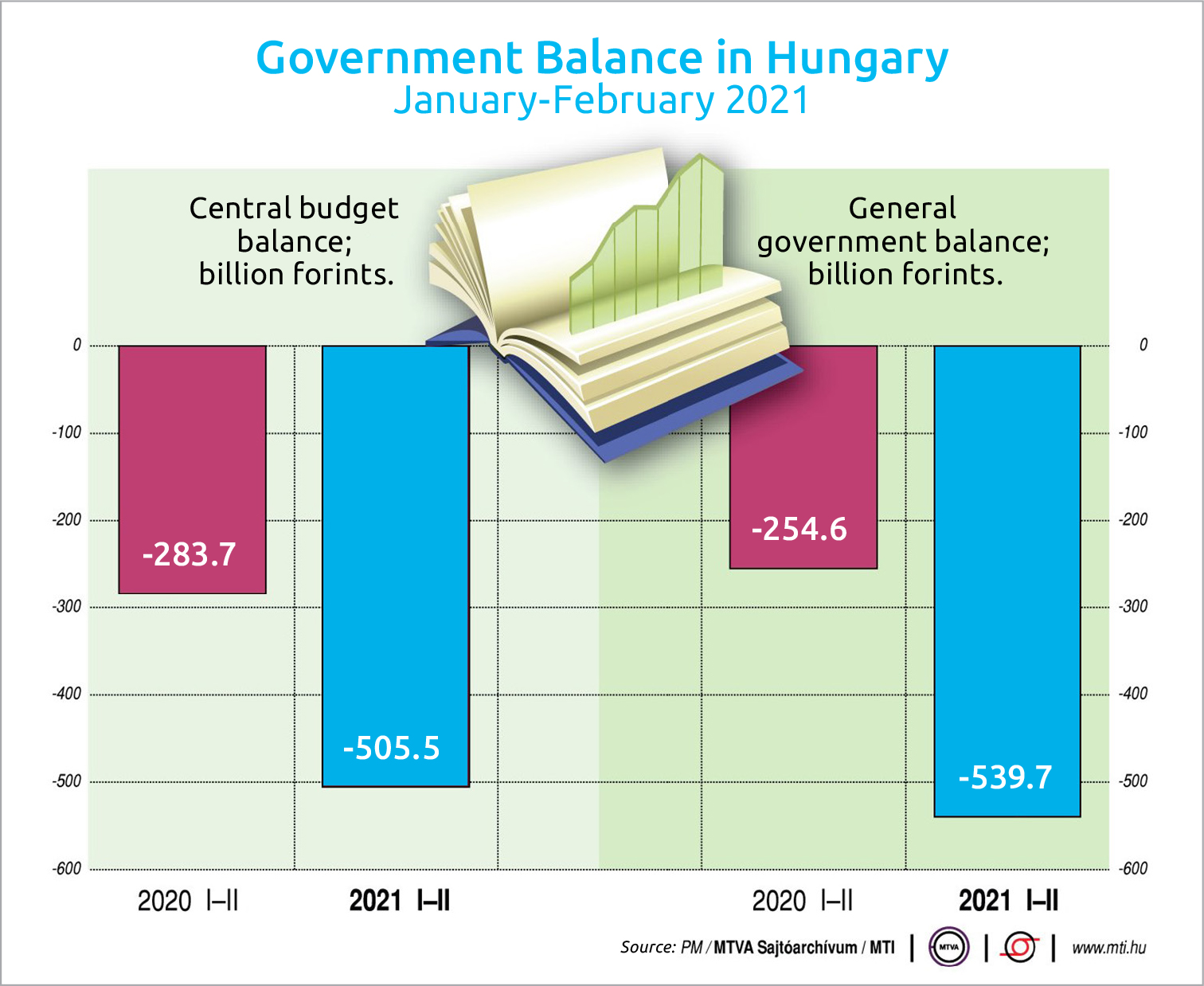Volatile Inflation Poses Greatest Challenge

Recovery from the coronavirus crisis might be quicker than previously expected, but it will be accompanied by higher inflation, the National Bank of Hungary (MNB) says in its latest Inflation report. The greatest challenge is the volatile nature of inflation during 2021; however, for the full year, CPI will remain within the bank’s tolerance band, the MNB says. According to analysts, there is mounting pressure on the central bank to raise its short-term interest rates.
There will be “temporary upsurges” in inflation in 2021, but these will be the consequence of one-off and external factors, MNB governor György Matolcsy said at a press conference following the rate-setters’ meeting of the Monetary Council of the MNB on Tuesday (March 23).
Hungarians should not fear “runaway” inflation, he stressed. By the first quarter of 2022, MNB expects inflation to be “close to the 3% target.”
The Monetary Council decided to leave the central bank base rate unchanged at 0.6% at its monthly policy meeting on Tuesday. The council also decided to leave the overnight (O/N) deposit rate at -0.05% and the O/N and one-week collateralized loan rate at 1.85%.
In a statement released after the meeting, the council said inflation is “likely to be highly volatile” in the coming months, spiking due to base effects, rising fuel prices, further increases in excise duties and demand-supply frictions as the economy restarts.
High CPI
According to the MNB, consumer price inflation would be as high as 5% in the second quarter, with rising fuel prices and tax changes accounting for about half of the increase, before returning to the central bank’s 3% +/- one percentage point tolerance band from the summer months.
As for the entire year, average annual inflation is expected to be “in the range of 3.8-3.9%,” the bank said, while core inflation excluding indirect tax effects will be “around the 3% level,” policymakers added.
The council said the MNB remains “committed to maintaining price stability even during the third wave of the coronavirus pandemic,” adding that it is the central bank’s “clear intention to prevent the current uncertain environment from causing a sustained rise in inflation.”
It said the “greatest risk” in terms of the outlook for inflation is posed by “the increase in risk aversion vis-a-vis emerging markets and potential second-round effects following the restart of the economy.”
In its latest quarterly Inflation report, also released on March 23, the MNB upgraded its previous economic forecast. The central bank now expects Hungary’s GDP to grow by 4-6% this year, returning to its pre-crisis level. The bank had forecast a growth rate of between 3.5 and 6% in its previous report released in December.
The central bank sees the economy expanding by 5-6% next year and by 3.5% in 2023. The bank’s forecasts for inflation show CPI at 2.9-3% in 2022. It left the 2023 inflation forecast unchanged at 3%.
London View
The MNB seems willing to put up with a higher-than-targeted inflation rate for a certain period, London-based financial analysts have commented on the MNB forecast.
Global financial services firm Morgan Stanley said it is clear that the MNB thinks the higher inflation to be temporary; however, it would tolerate a higher rate for a few months. According to analysts at Morgan Stanley, although the MNB is confident the Hungarian economy will kickstart following a weak first quarter performance caused by the restrictions, it is also committed to preventing a further rise in the inflation rate later.
Morgan Stanley’s economists said that they maintain their forecast about the MNB keeping its rates at its current level; however, if inflation data causes an unexpected surprise, that might force the MNB to raise its one-week collateralized loan rates.
Analysts at one of the biggest financial research institutes, Capital Economics, say it is surprising that the MNB raised its inflation forecast for 2021. However, they also emphasized that the MNB clearly thinks it is only temporary and that the inflation rate might be able to return to its tolerance band in the second half of the year. They also noted that the MNB is clear about preventing inflation from remaining high for a longer period of time.
According to them, this is a clear sign that the MNB is ready to start tightening monetary conditions. That in turn, they say, might mean that the central bank needs to act soon. They note that the last two occasions when the MNB tightened its monetary policy, the forint/euro exchange rate hit an all-time low of 370.
Therefore, as the forint is close to this exchange rate now, and inflation seems to remain at its current higher level, there is a mounting pressure on the central bank to raise its short-term interest rates, the analysts at Capital Economics add.
Numbers to Watch in the Coming Weeks
Employment and unemployment figures for February will be released by the Central Statistical Office (KSH) on March 30. The next day, the KSH will publish earnings statistics for January. On April 7, the KSH will shed light on the performance of Hungarian tourism in February. The next day, the first estimate of the February industrial output figures will be released.
This article was first published in the Budapest Business Journal print issue of March 26, 2021.
SUPPORT THE BUDAPEST BUSINESS JOURNAL
Producing journalism that is worthy of the name is a costly business. For 27 years, the publishers, editors and reporters of the Budapest Business Journal have striven to bring you business news that works, information that you can trust, that is factual, accurate and presented without fear or favor.
Newspaper organizations across the globe have struggled to find a business model that allows them to continue to excel, without compromising their ability to perform. Most recently, some have experimented with the idea of involving their most important stakeholders, their readers.
We would like to offer that same opportunity to our readers. We would like to invite you to help us deliver the quality business journalism you require. Hit our Support the BBJ button and you can choose the how much and how often you send us your contributions.








